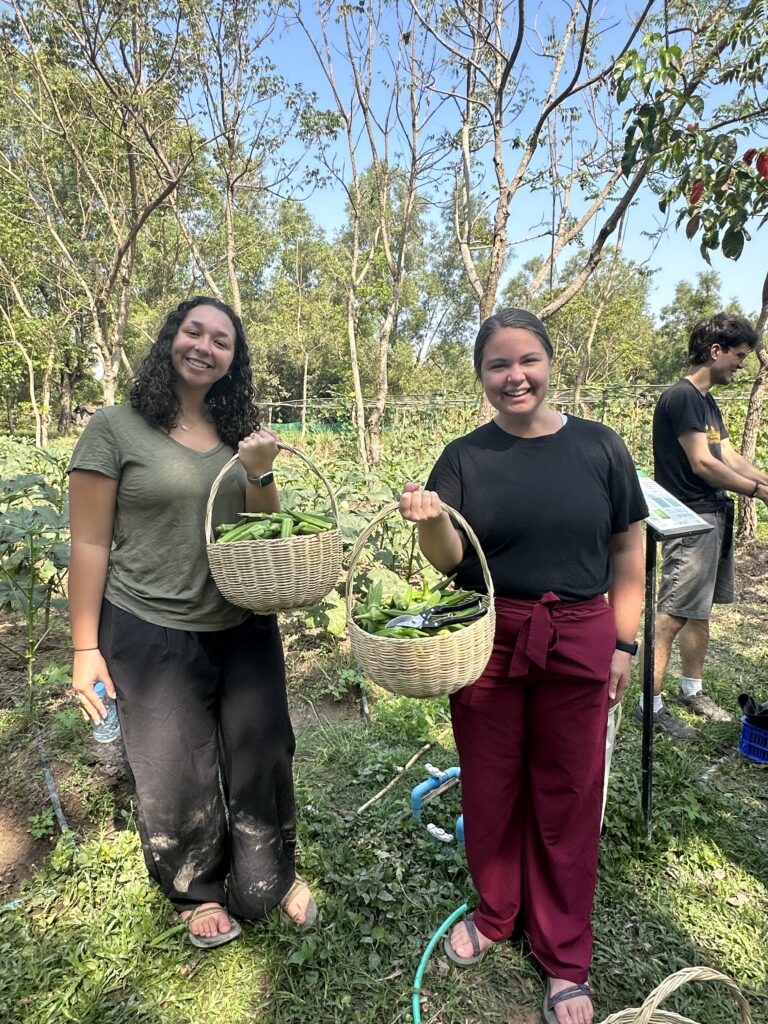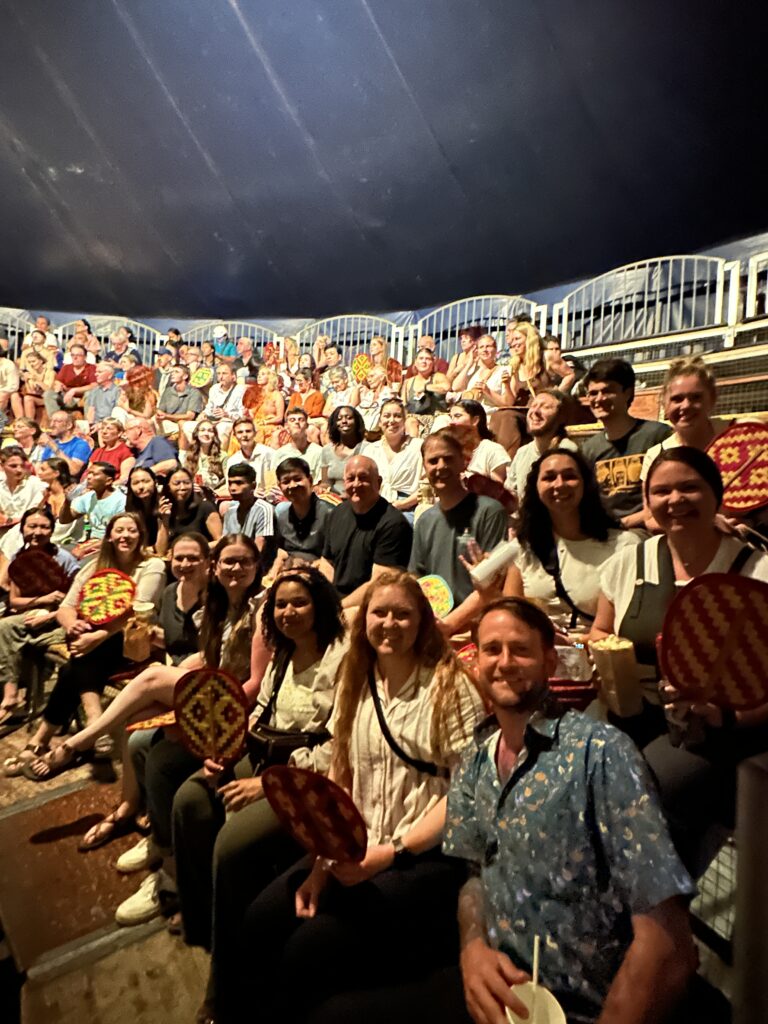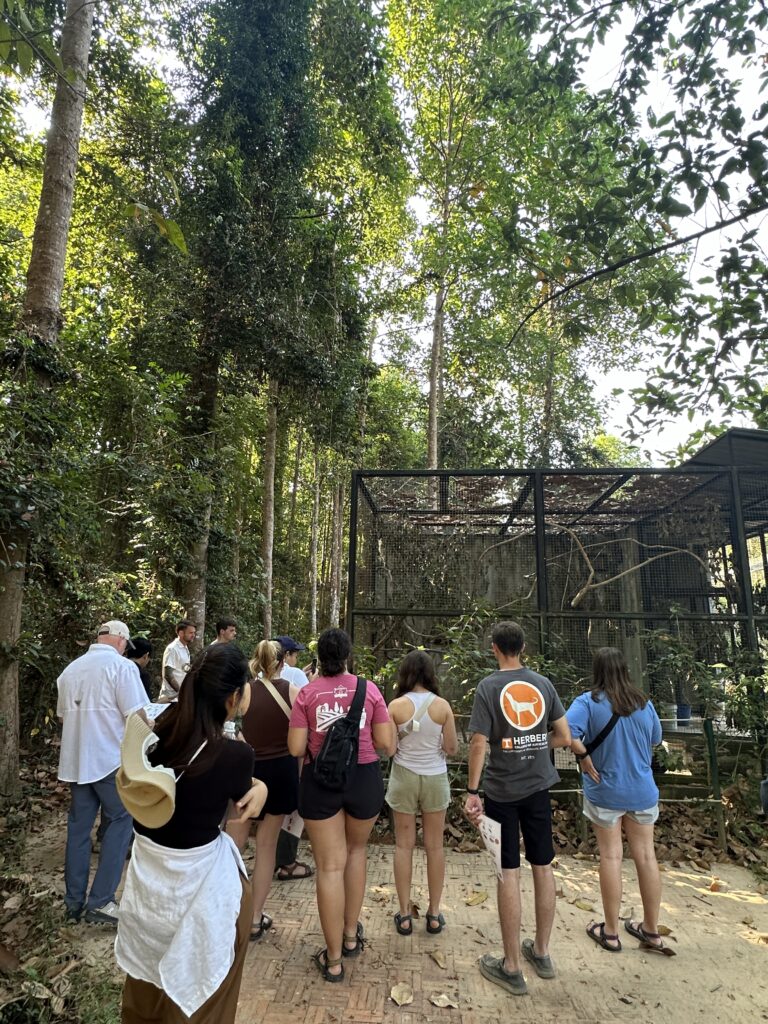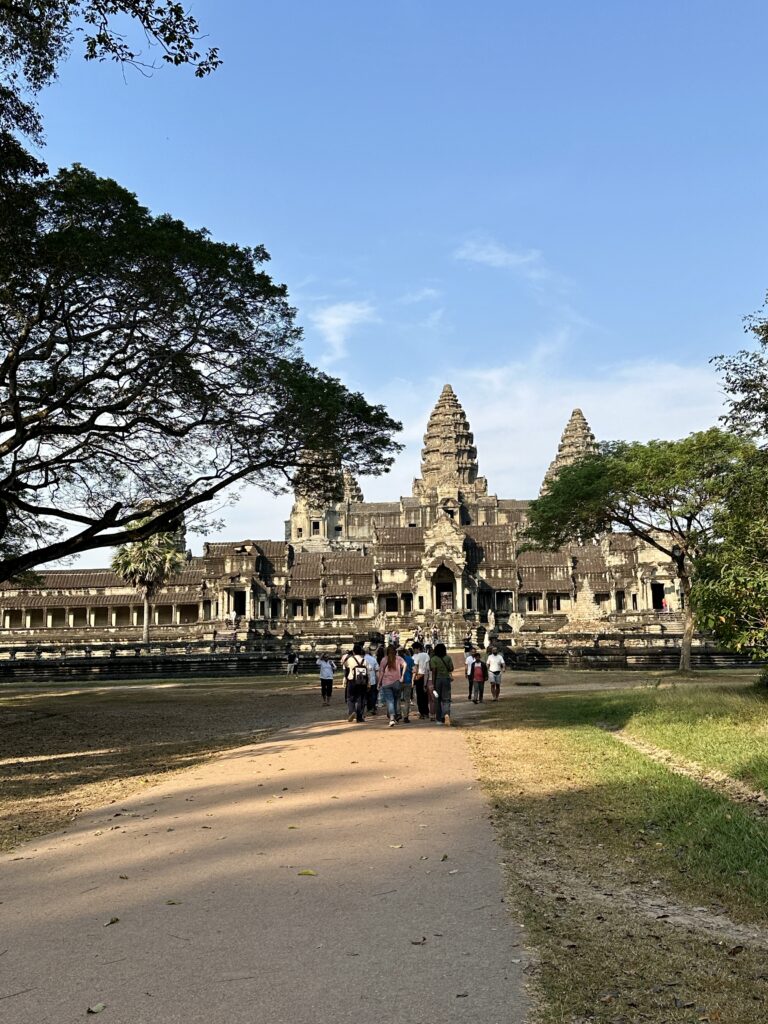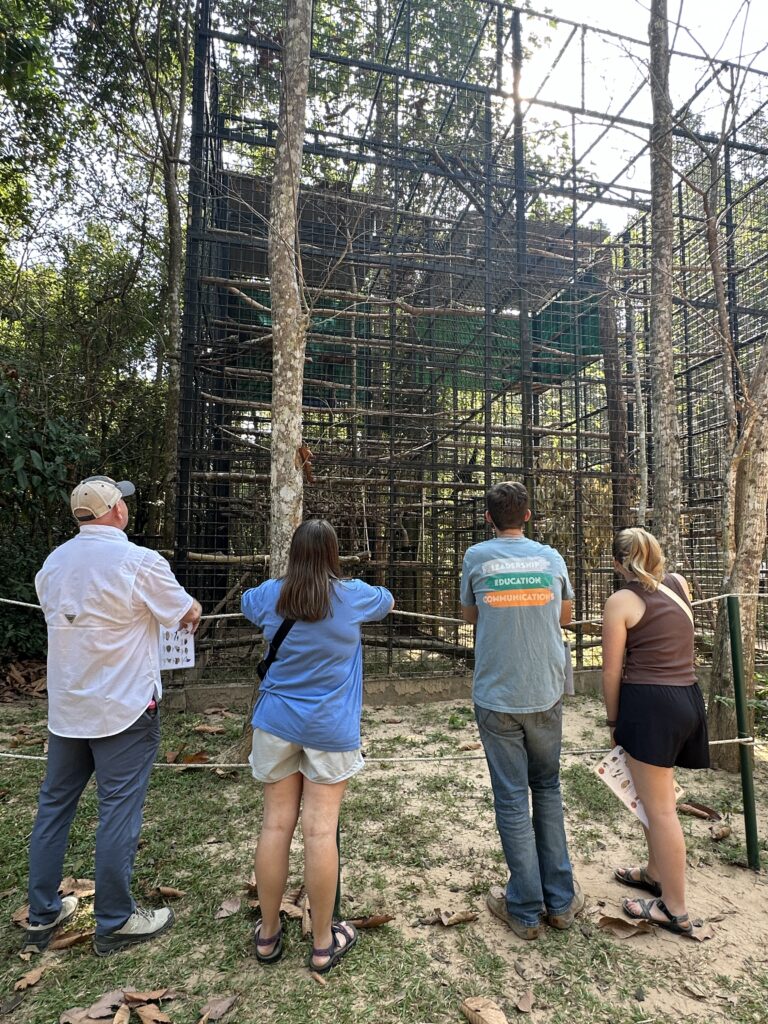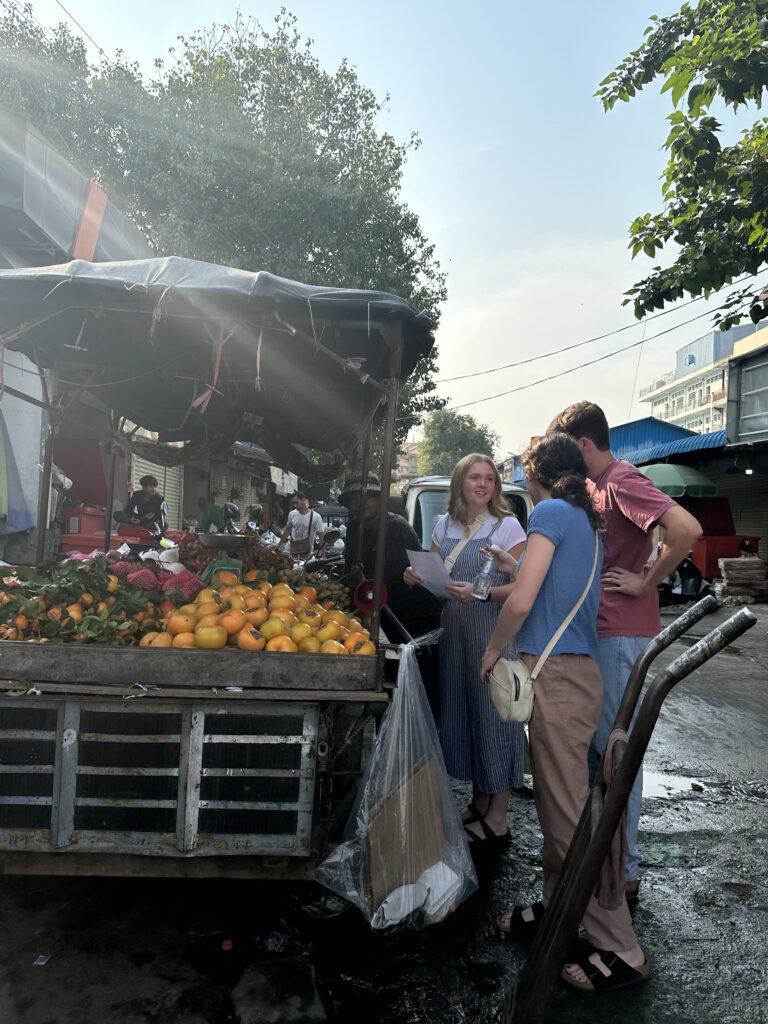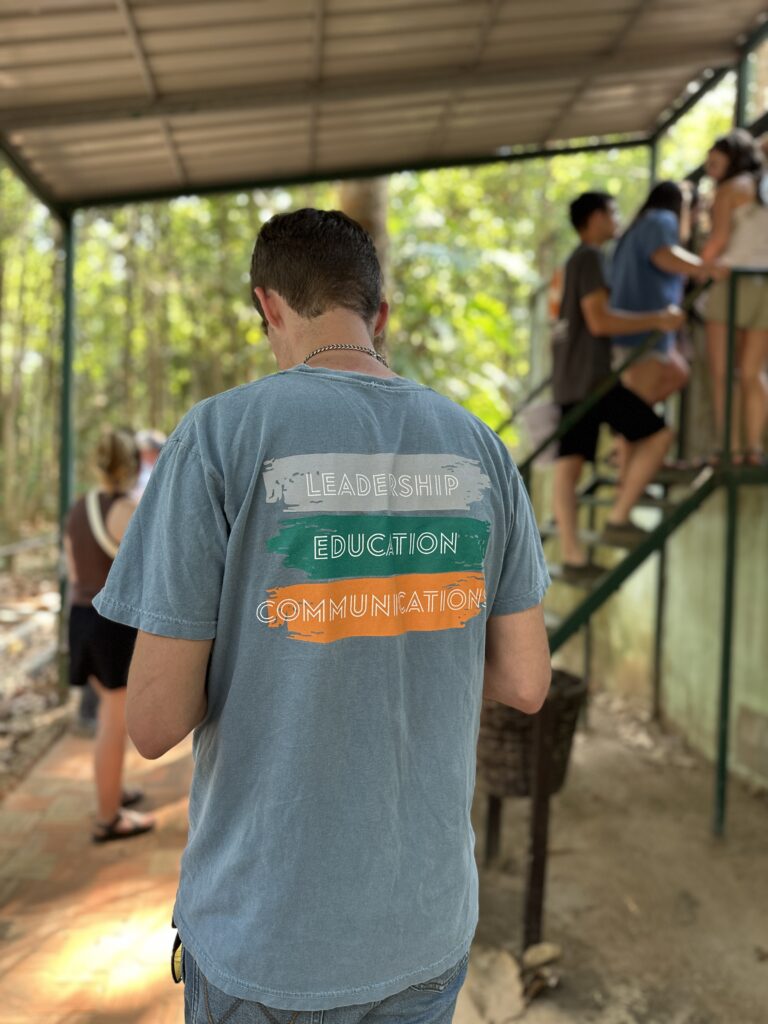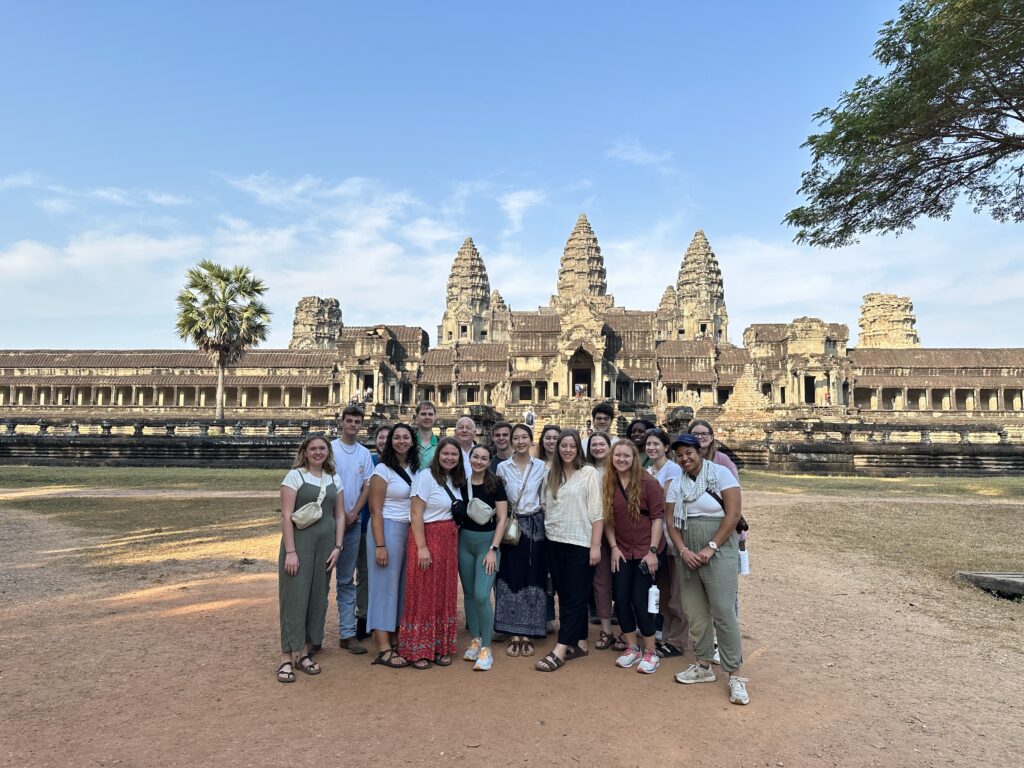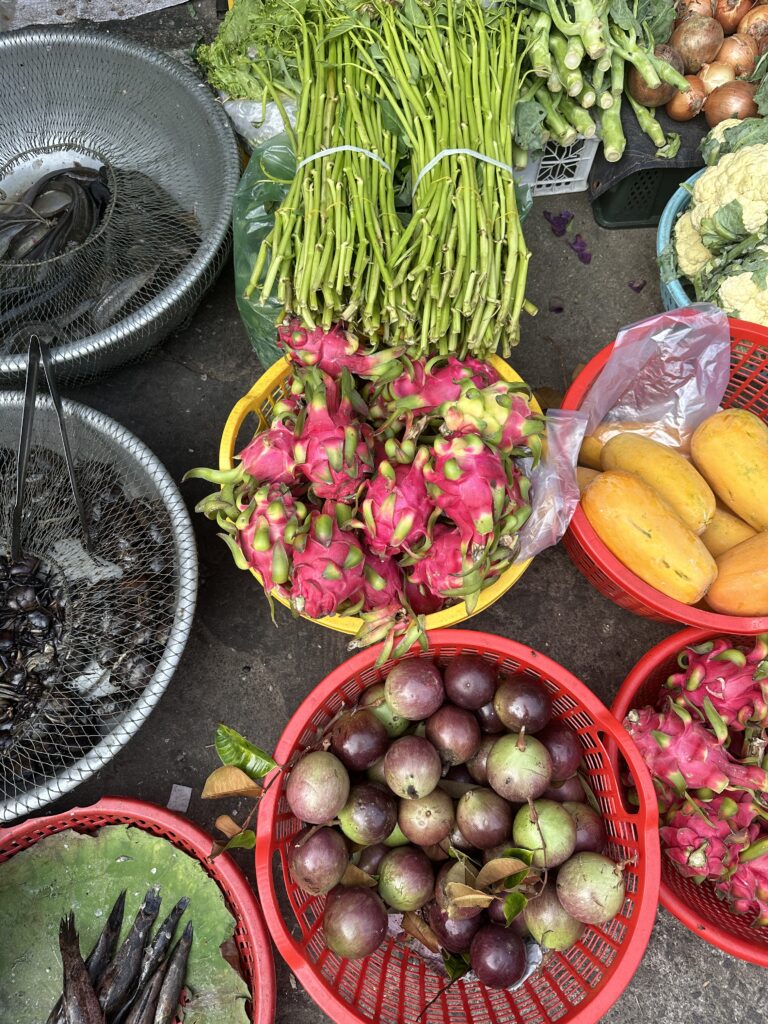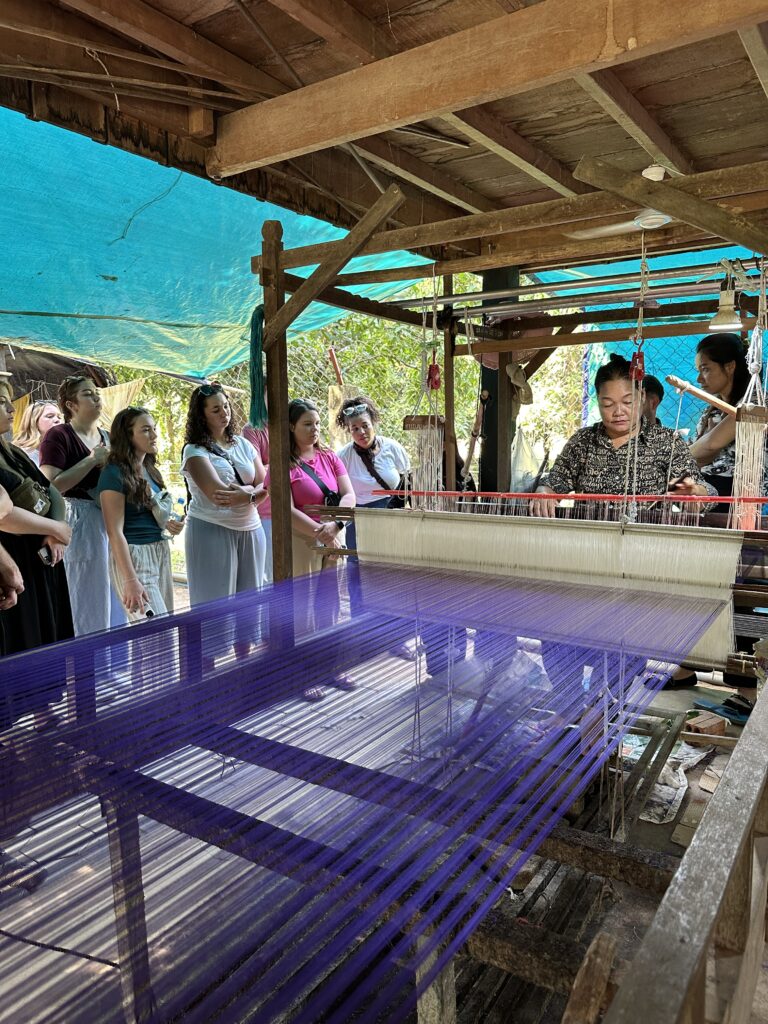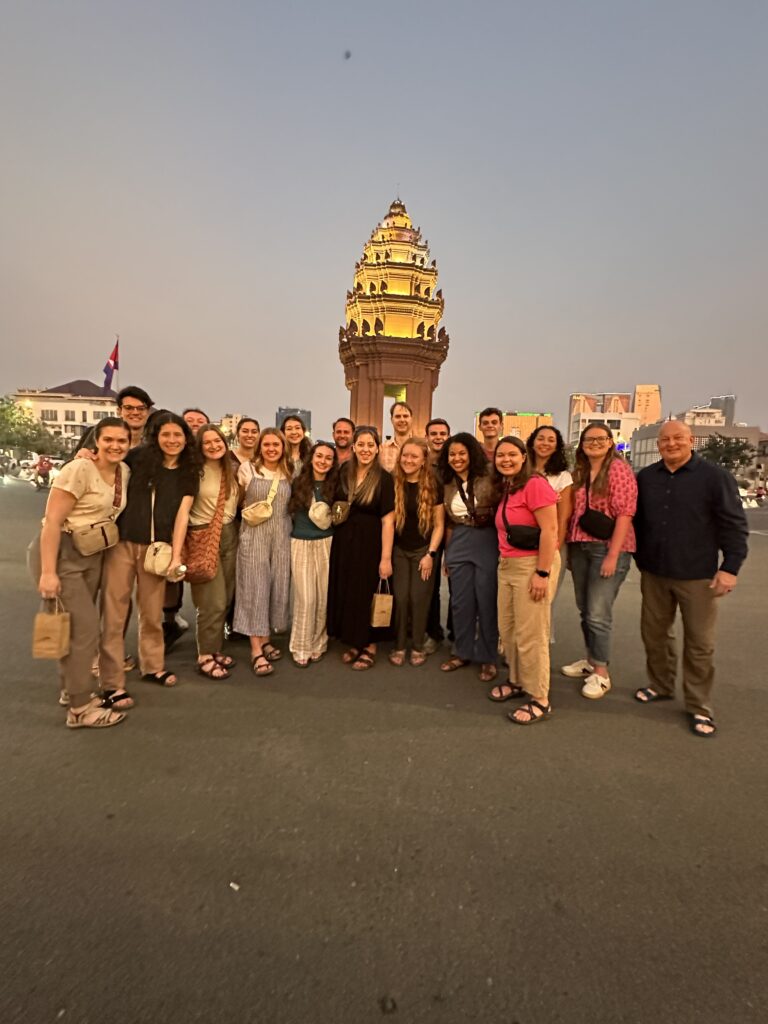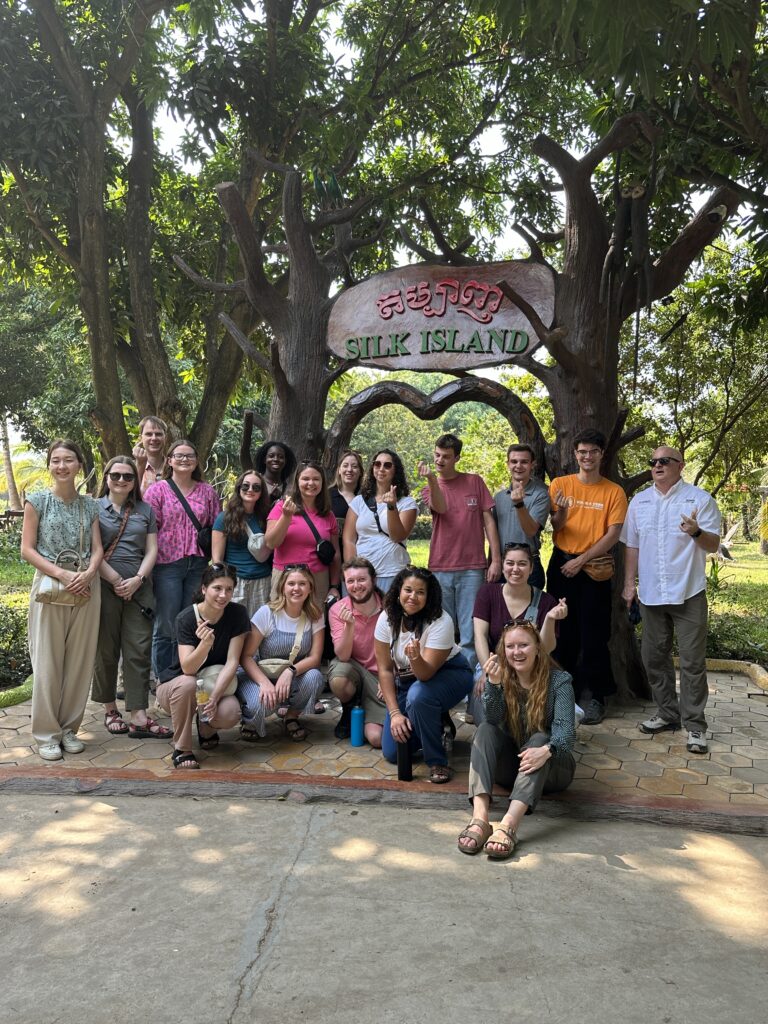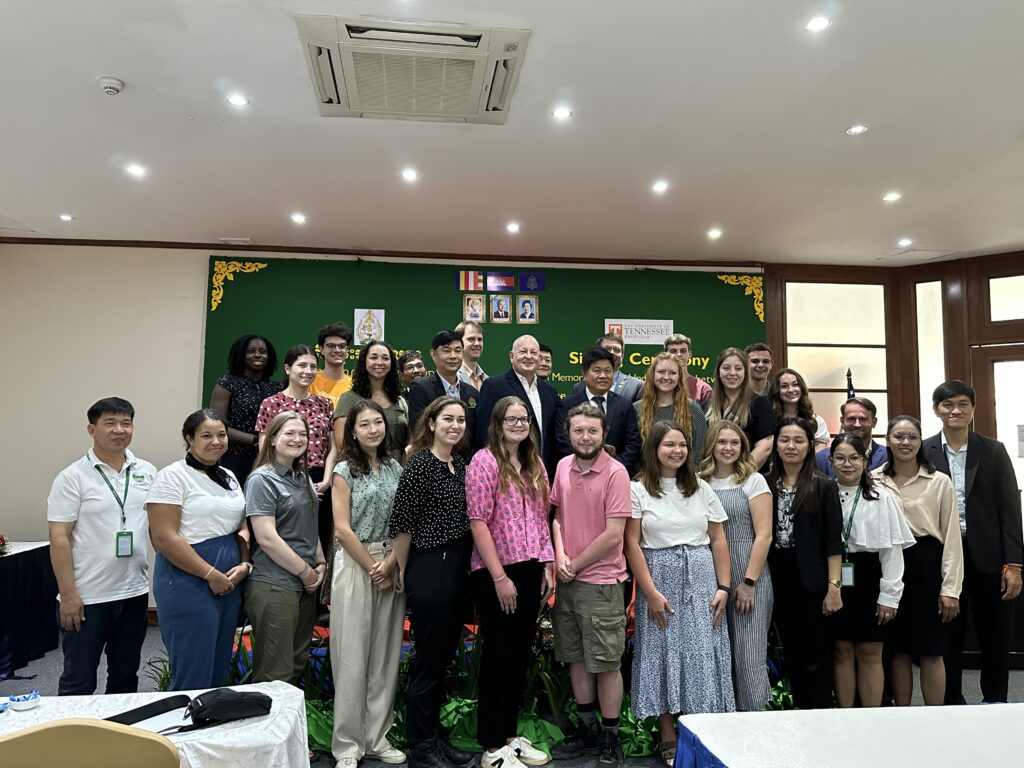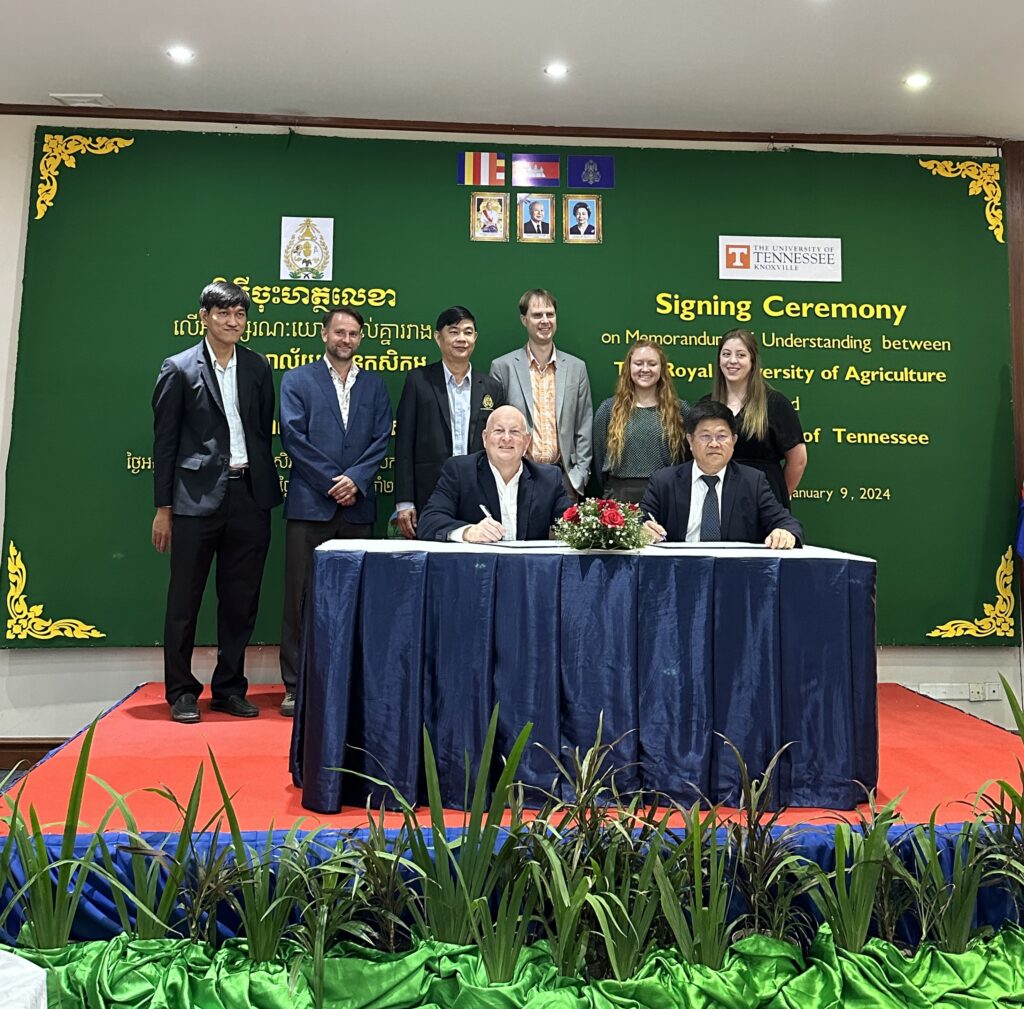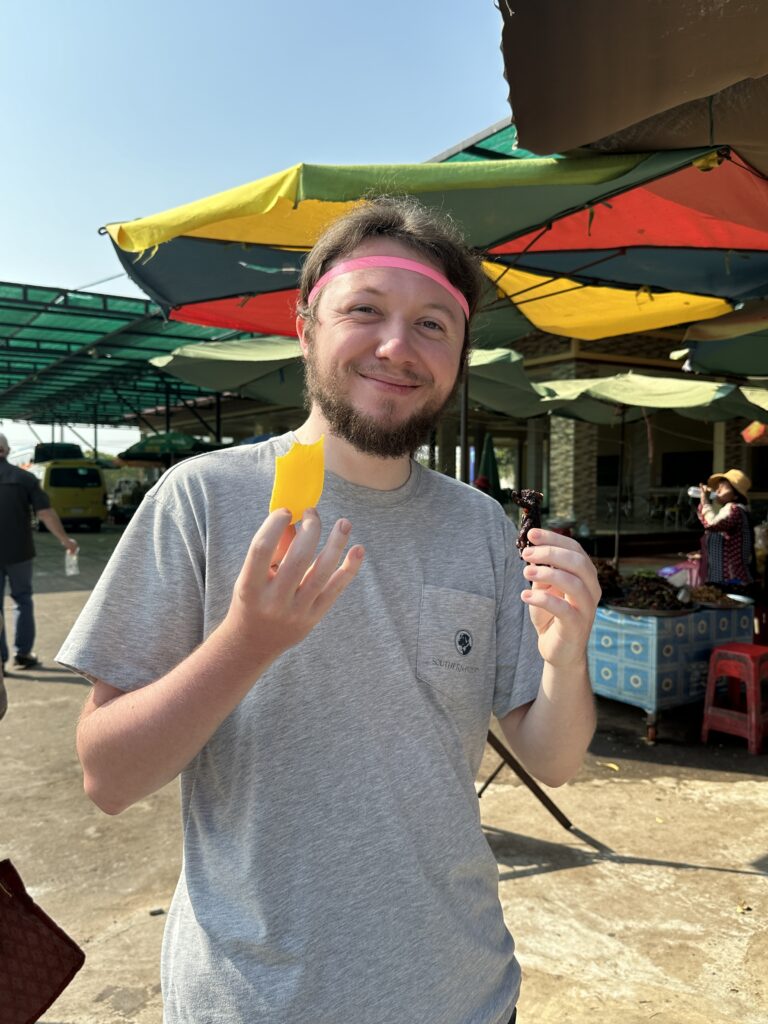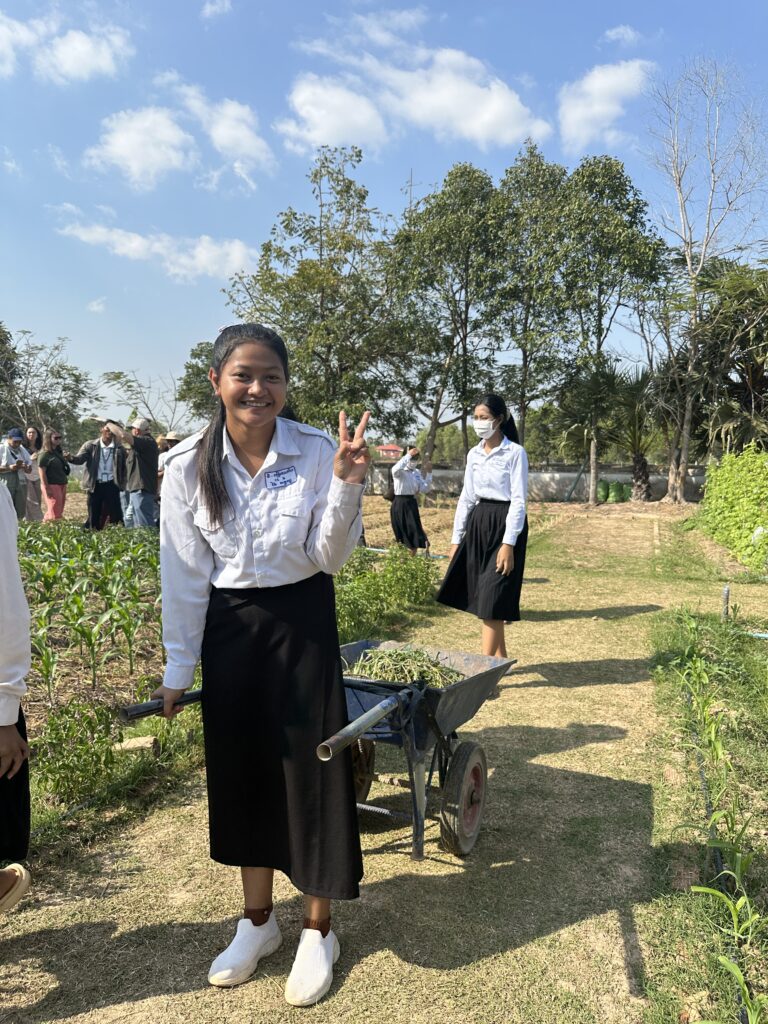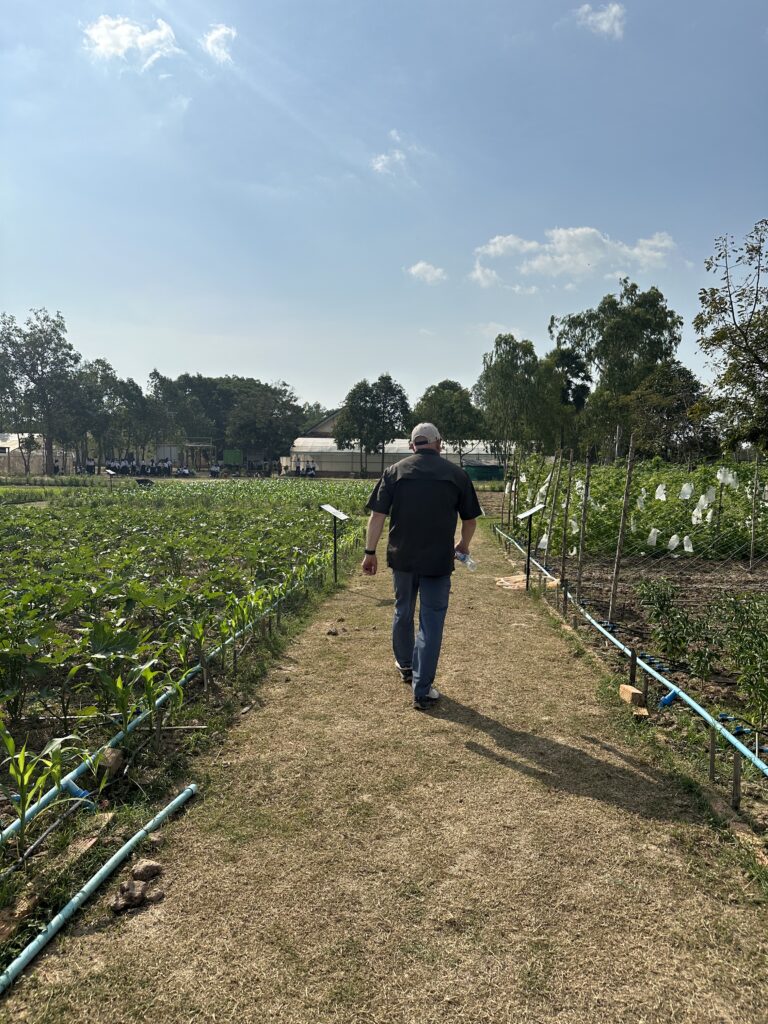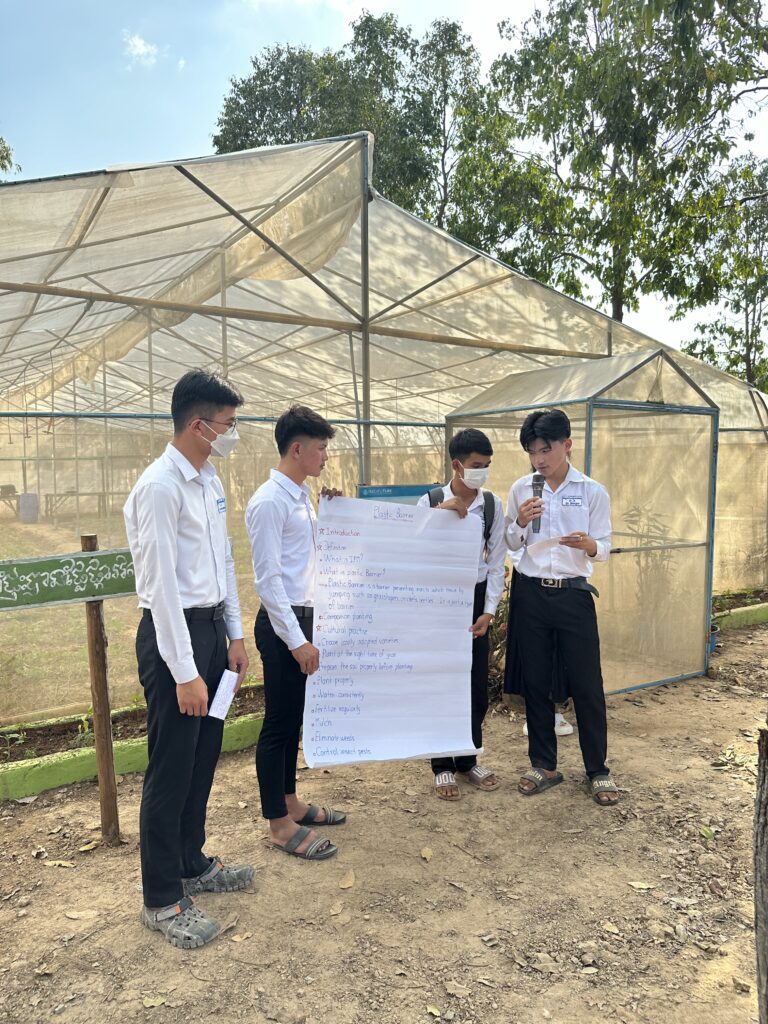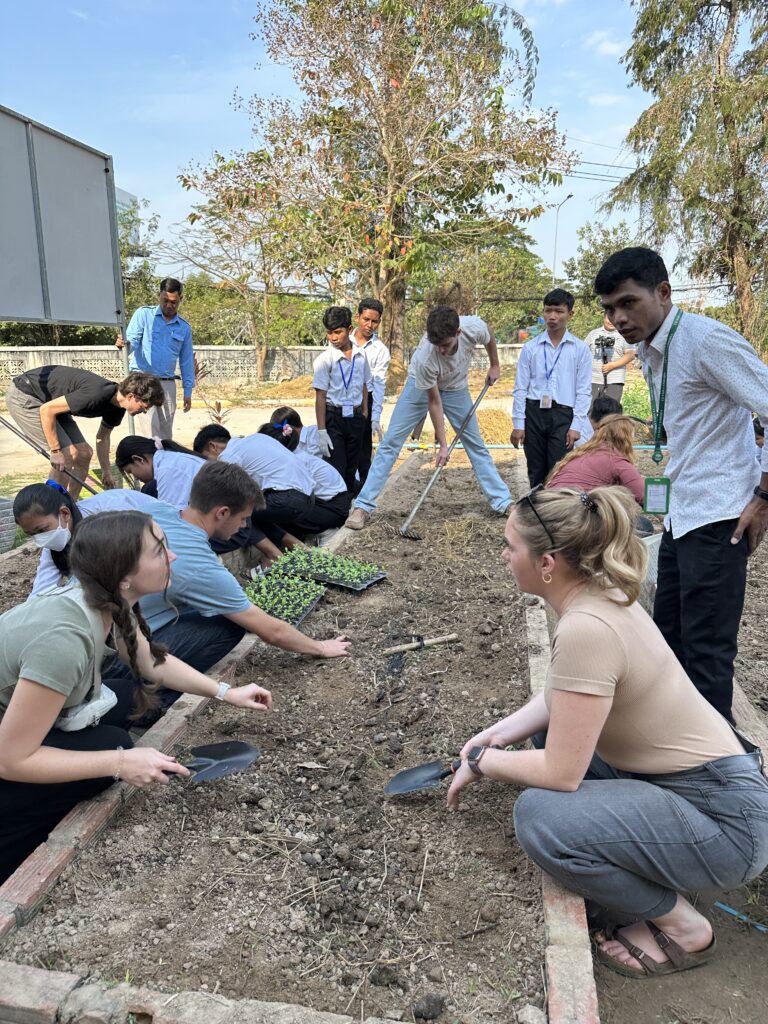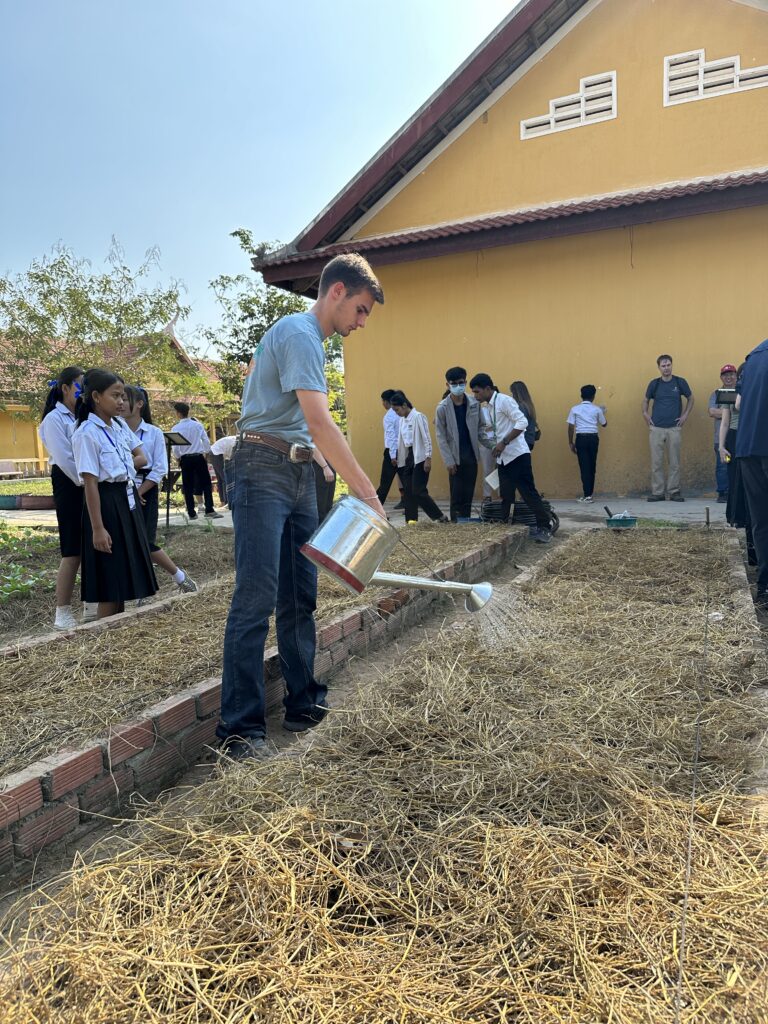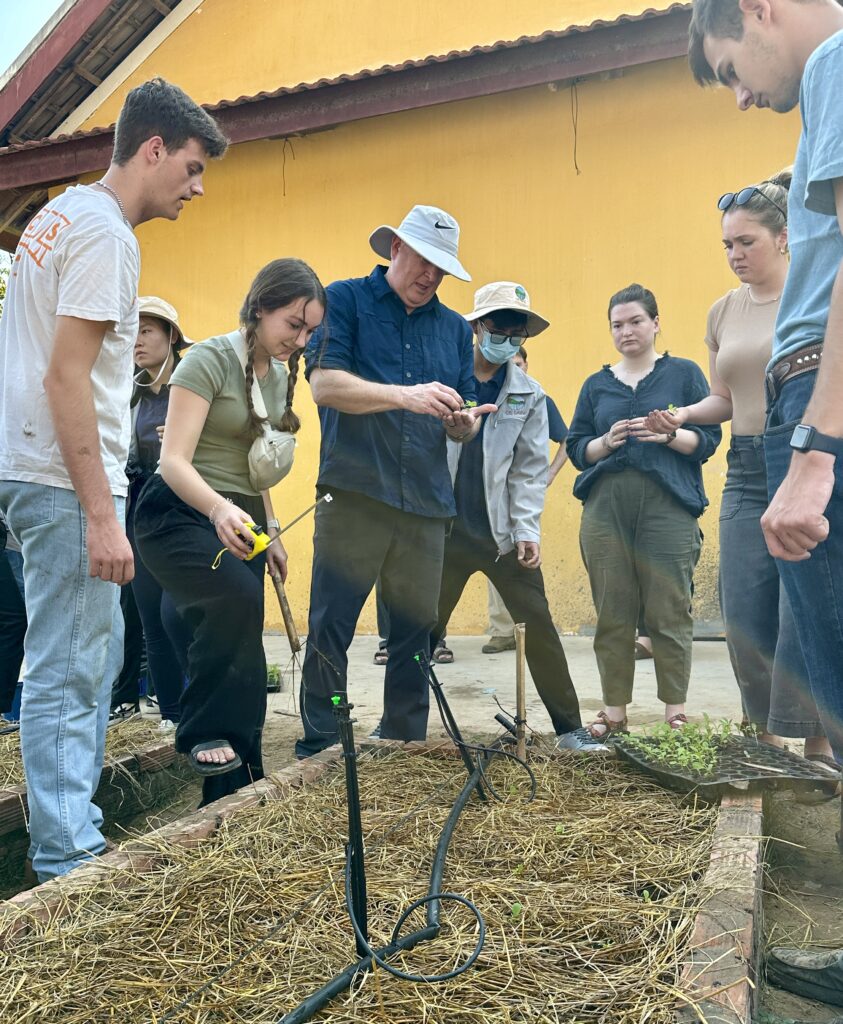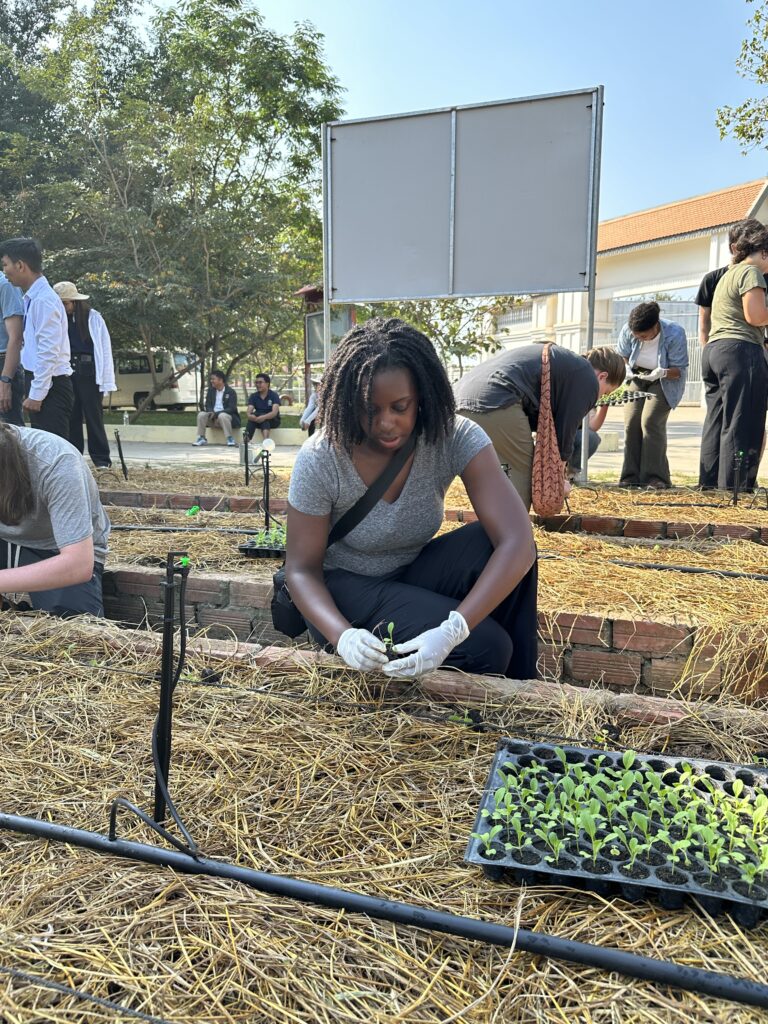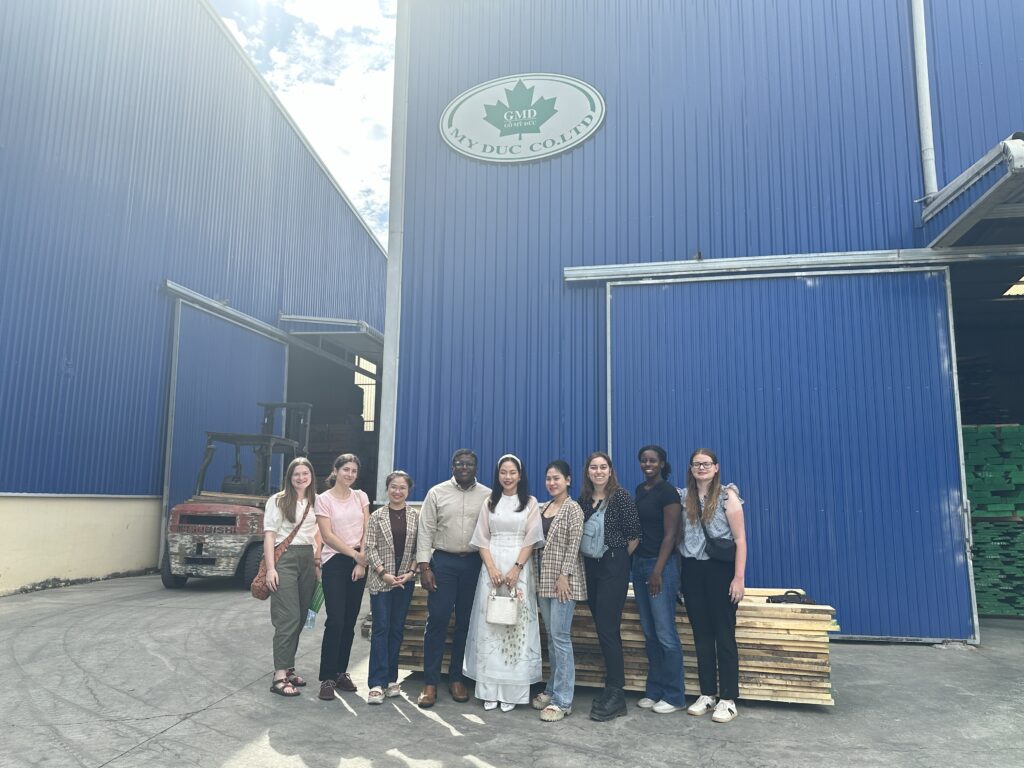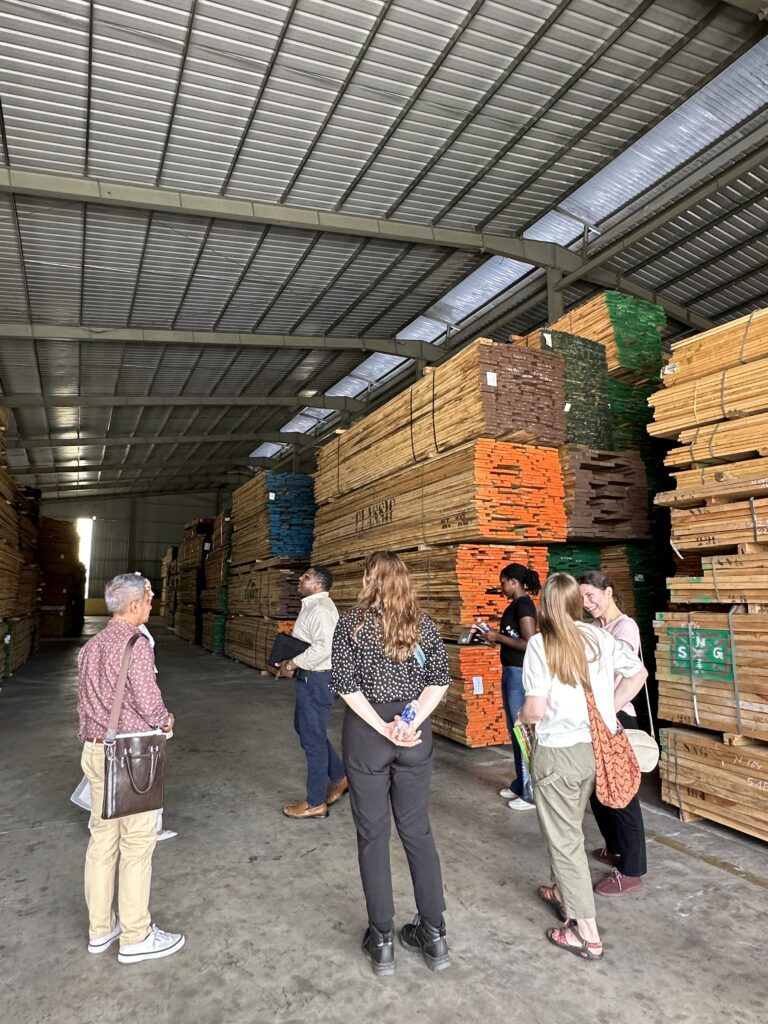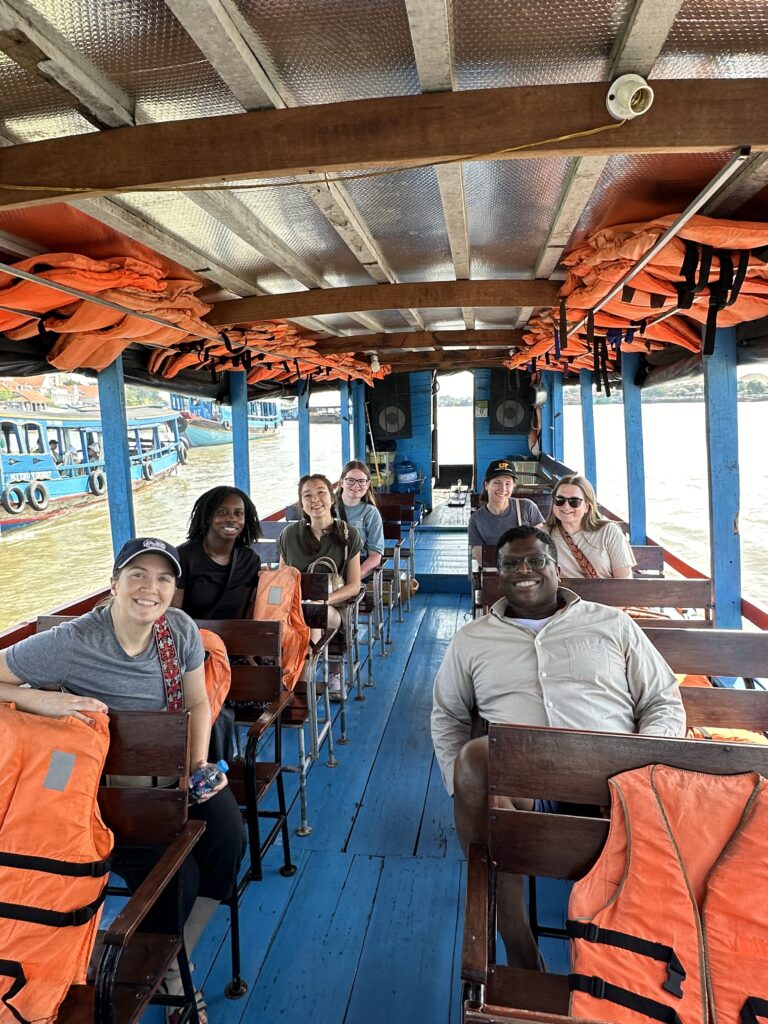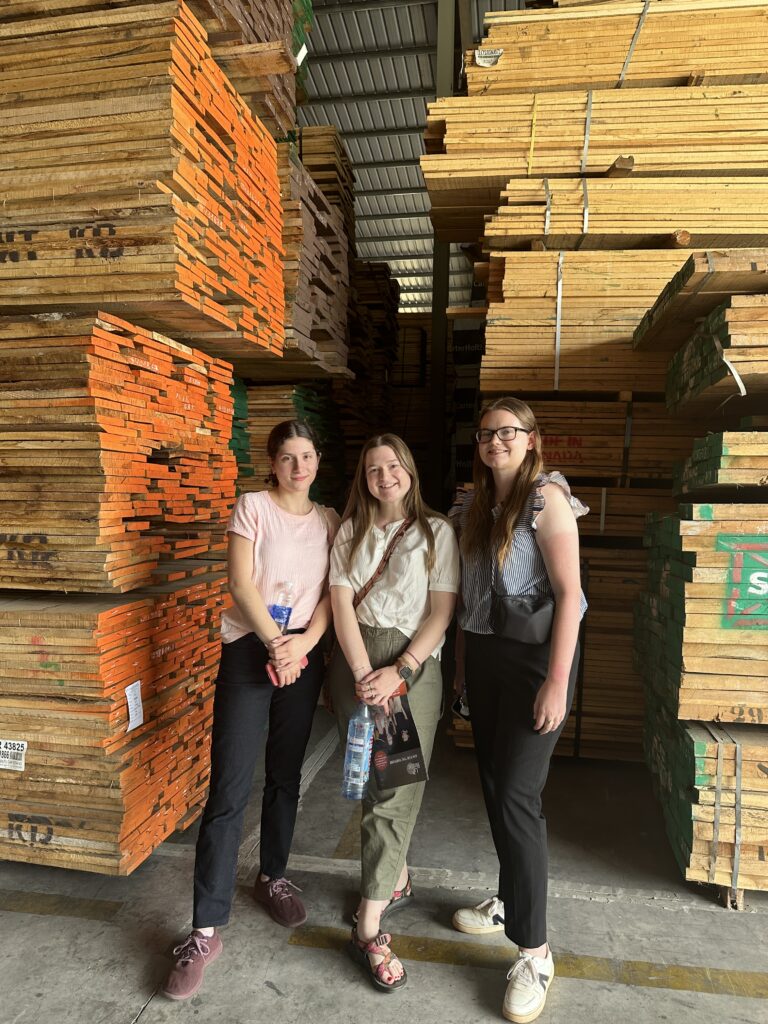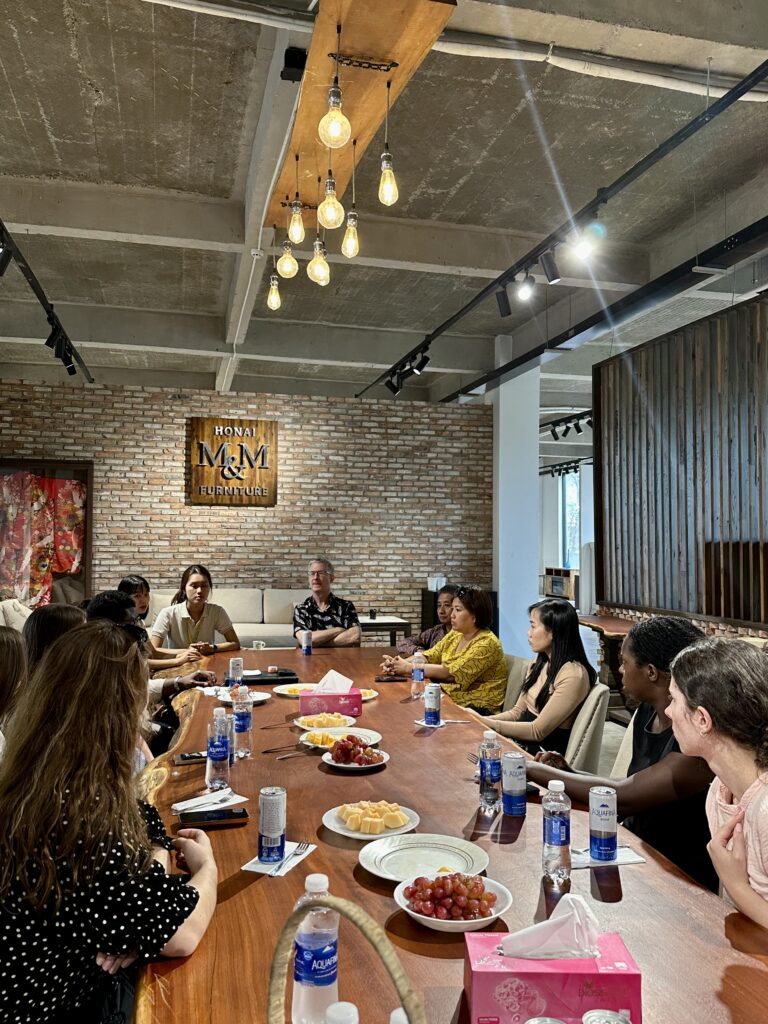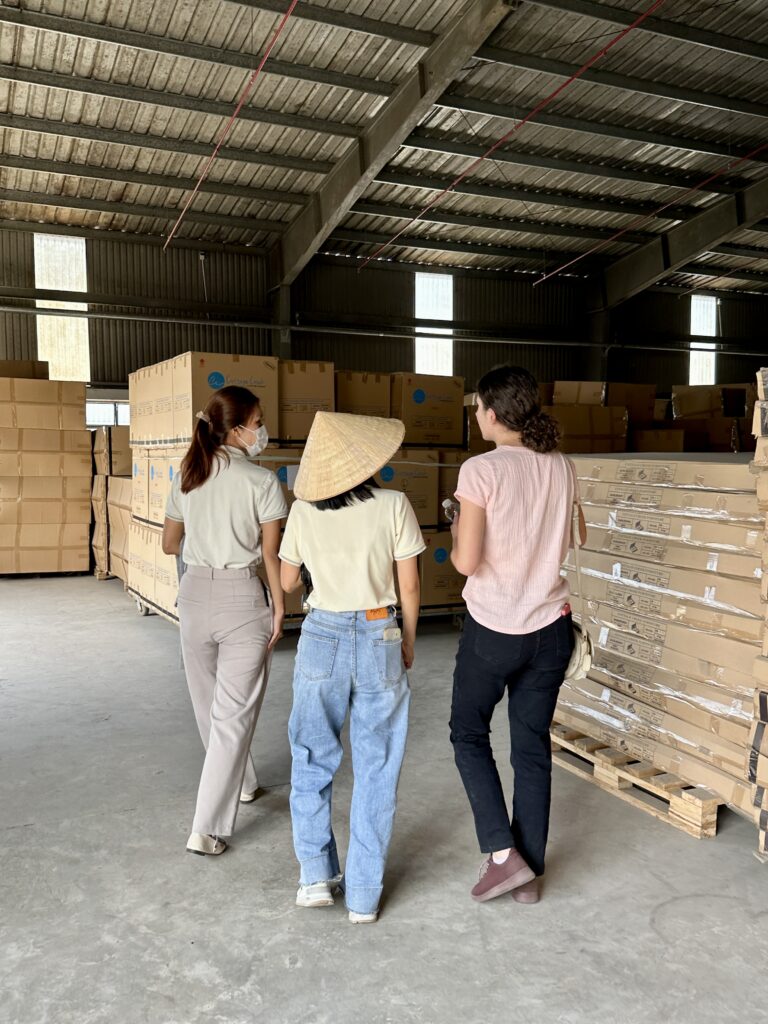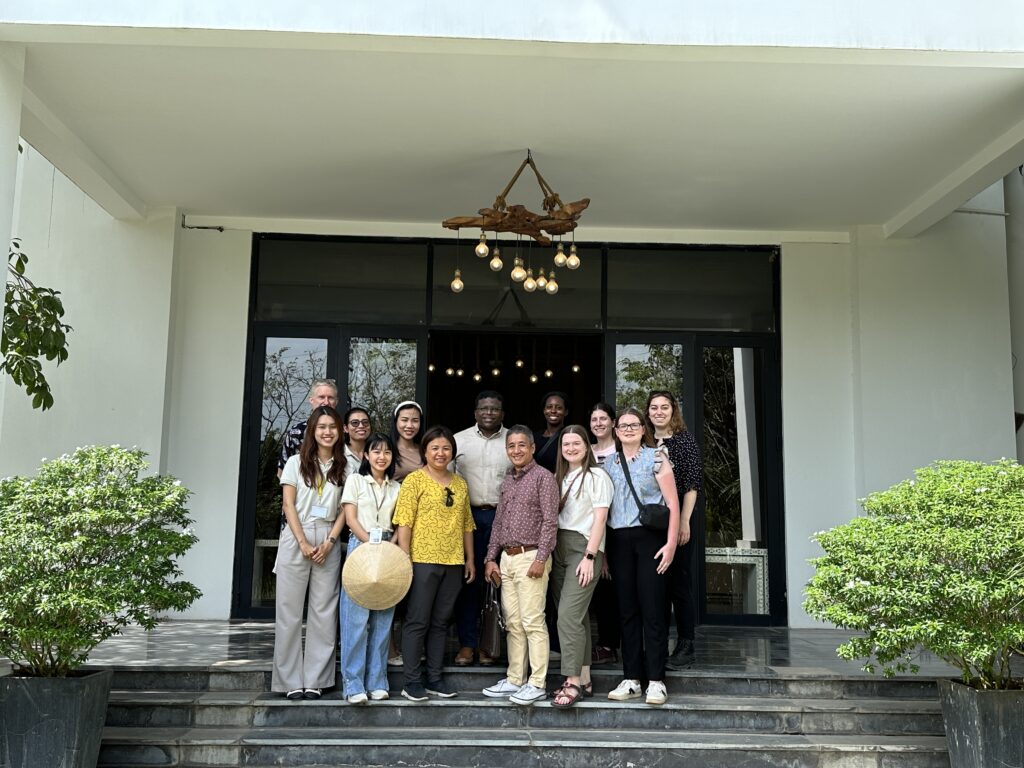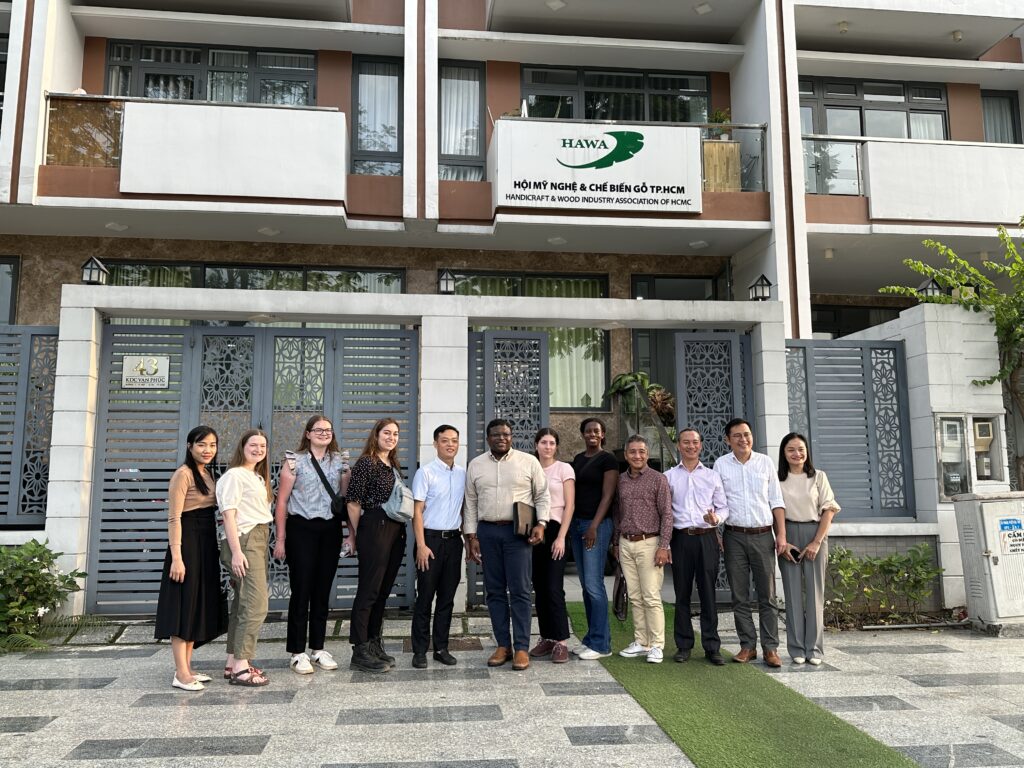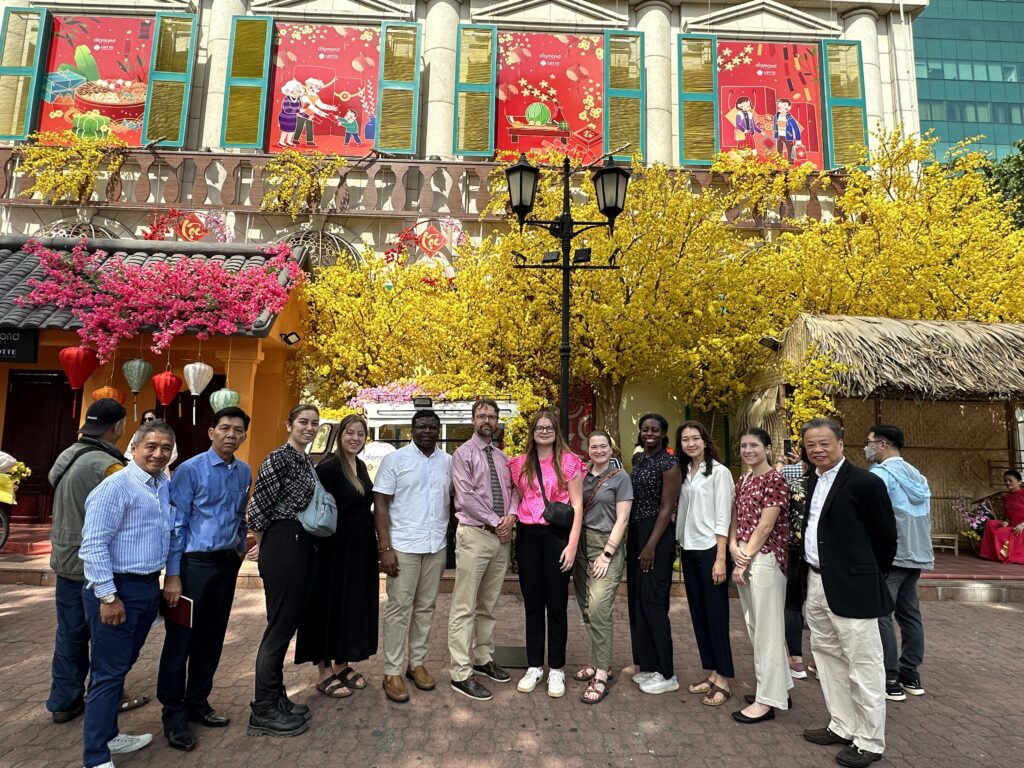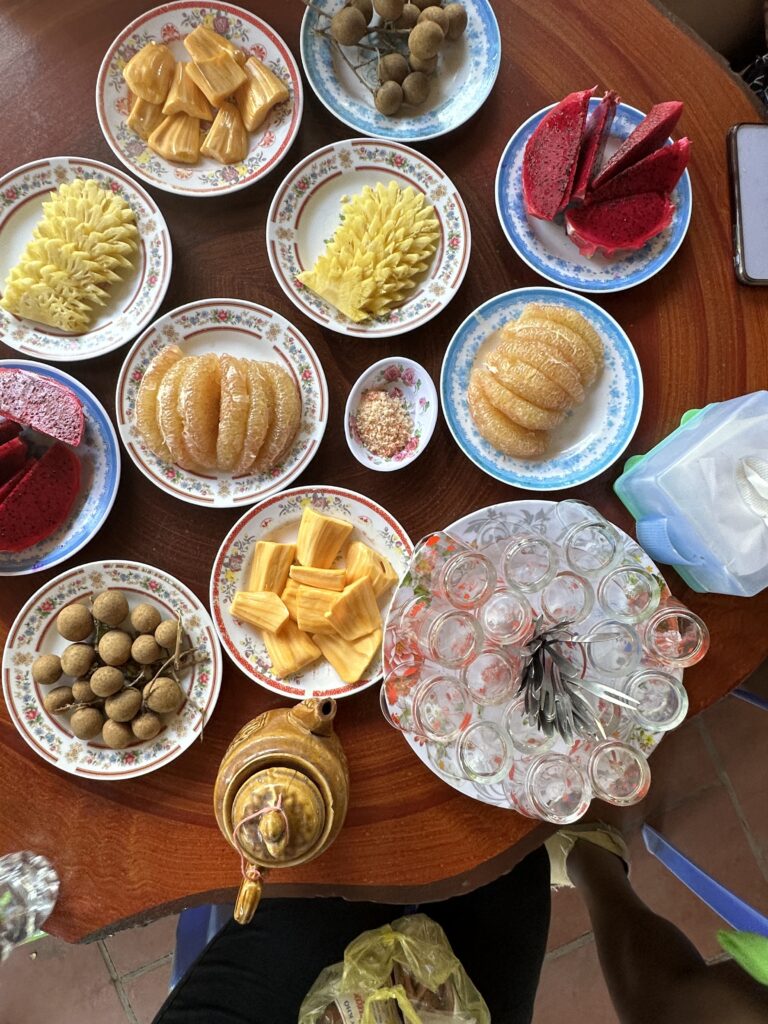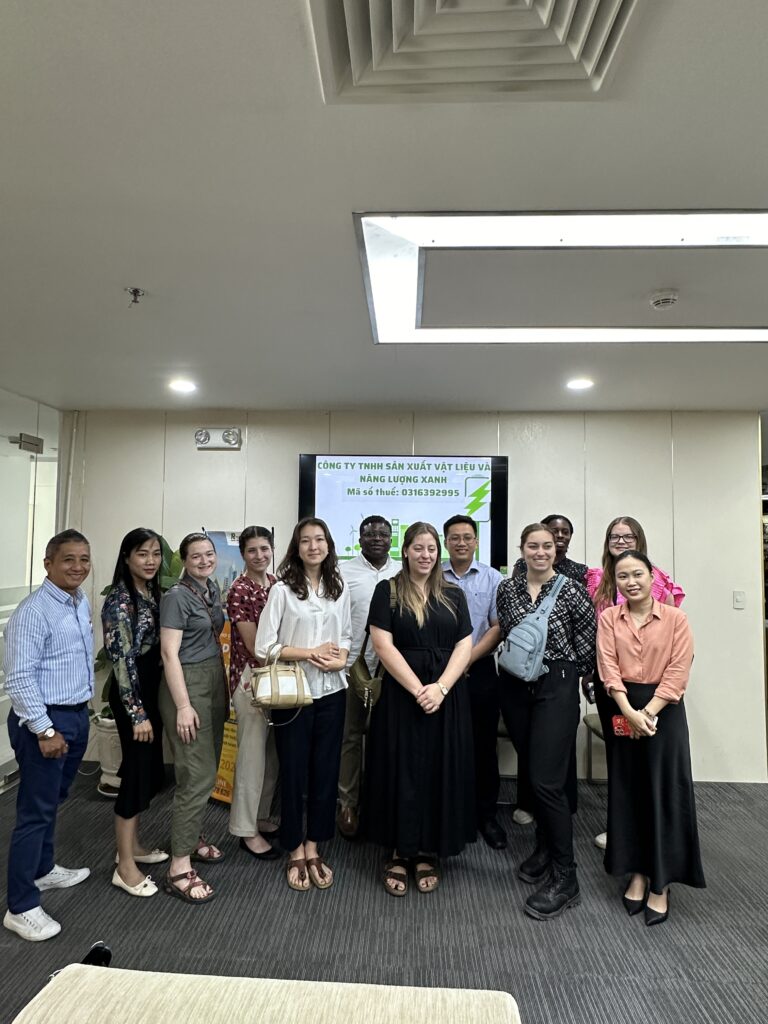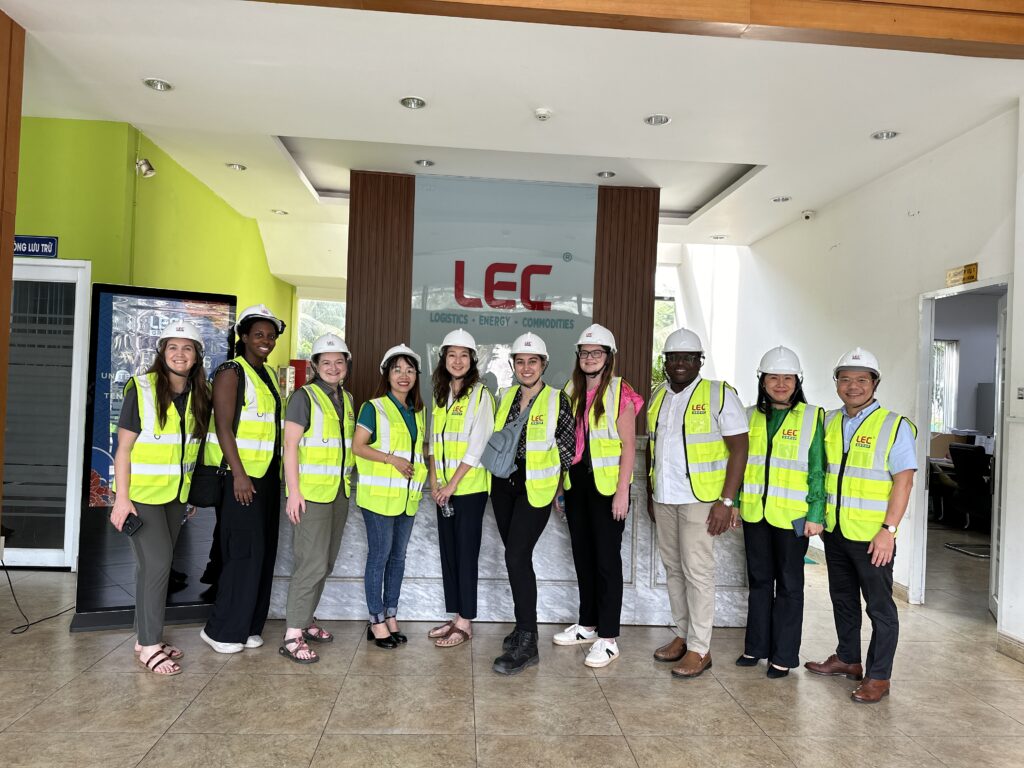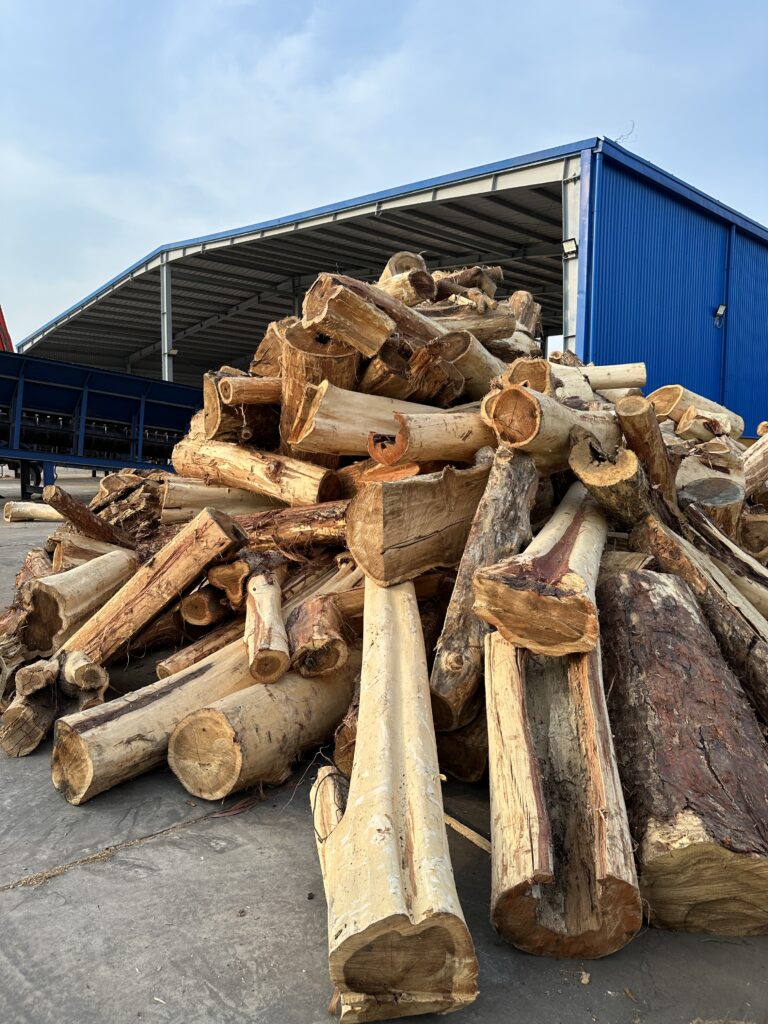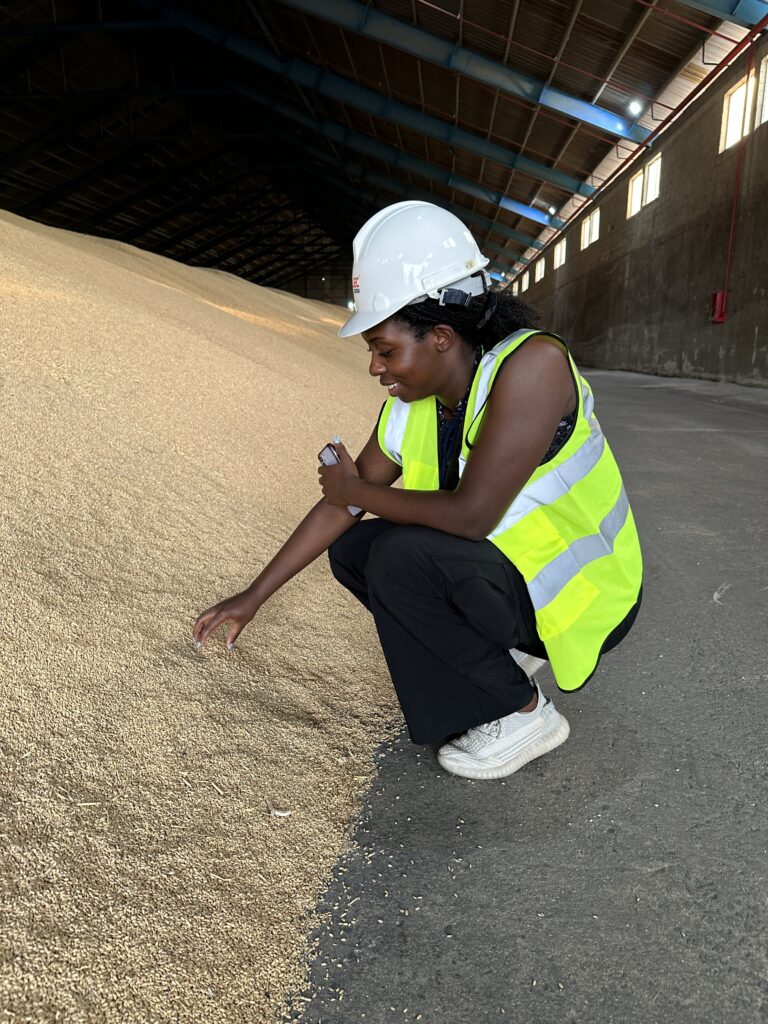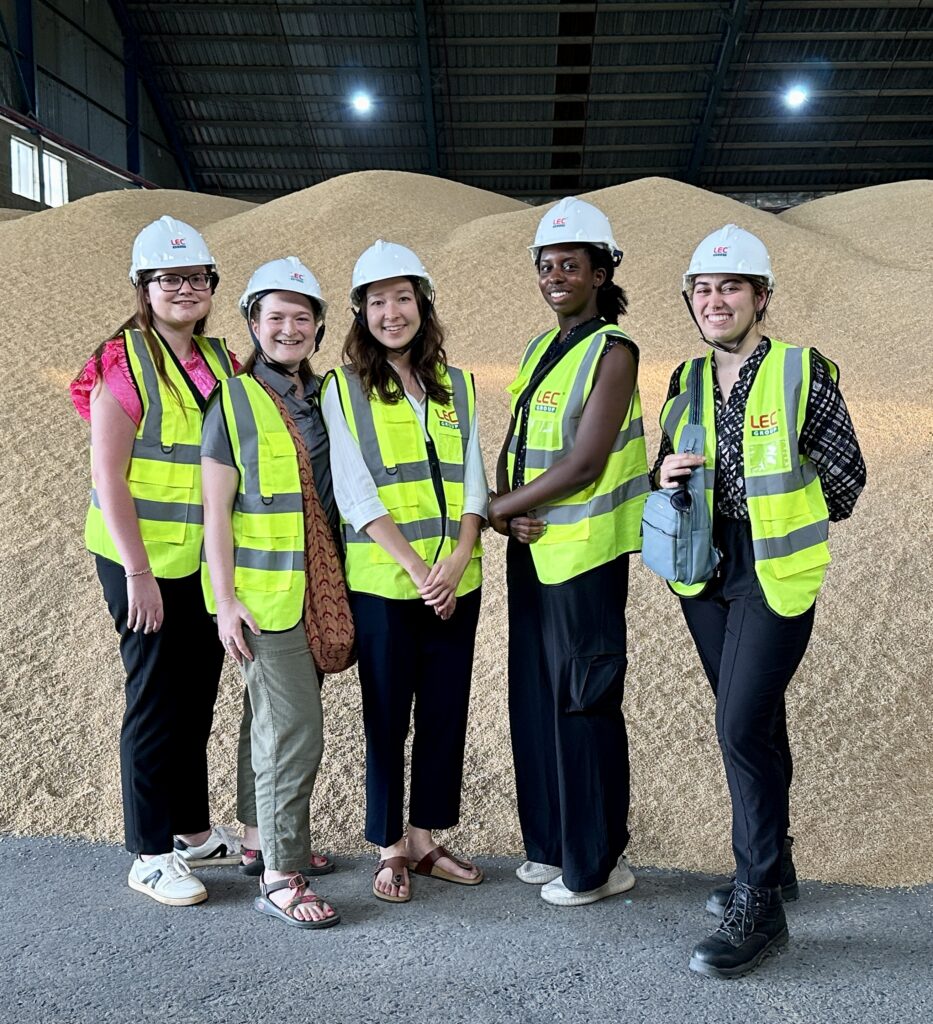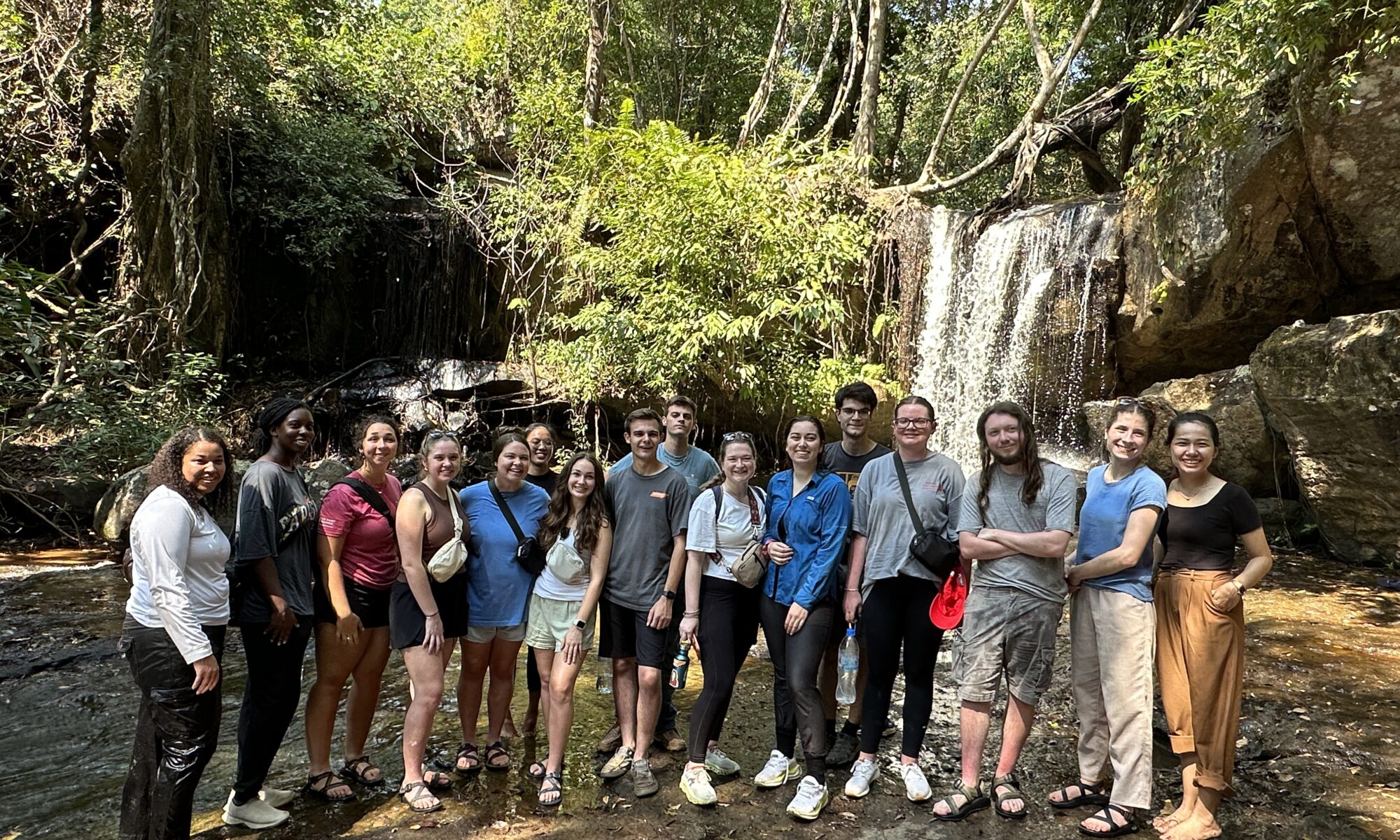
By Mary Shelley-Snell
In January, the Smith Center for International Sustainable Agriculture led a study abroad program to Southeast Asia. The group included nine Herbert College of Agriculture students and six National Needs Fellowship (NNF) graduate students. Dave Ader, research assistant professor and assistant director of the Smith Center, and Gracie Pekarcik, Farmer-to-Farmer ALOFT project program manager – host coordinator, led the group accompanied by Keith Carver, University of Tennessee Institute of Agriculture senior vice chancellor and senior vice president, Tom Gill, director of the Smith Center, Morgan Owens, Farmer-to-Farmer ALOFT project program manager – volunteer recruitment, and Mary Shelley-Snell, global communications leader for the Smith Center.
Herbert students participating in the Cambodia study abroad program.
The students learned about agriculture in Cambodia through experiences like a visit to a peppercorn farm, planting mangroves, visiting several agricultural technology parks, working with Cambodian high school students to plant a school garden, and learning about silk production. They engaged with Cambodian culture by touring the Angkor Wat Temple complex, learning about the social impact of the Phare Circus, and visiting the National Museum of Cambodia. “The agriculture we experienced was different from what I’m accustomed to and I am very thankful to have gotten to learn so much about it,” Callie Robinson, a sophomore majoring in agriculture communications and minoring in international agriculture and agricultural leadership, said about her experience in Cambodia. “An example of something I enjoyed learning about is how they fold over live bushes to use as fences to save money. It showed me that Cambodian farmers really use all of their resources! And while this fence may not be as efficient as what we use in the U.S., it still gets the job done effectively.”
UTIA strengthened the partnerships built by the Smith Center when Carver signed a memorandum of understanding (MOU) with the Royal University of Agriculture (RUA). The Smith Center worked with RUA previously through the Farmer-to-Farmer Cambodia project, and the MOU has further cemented that partnership and creates opportunities for UTIA faculty, staff, and students to grow global in Southeast Asia.
“While it was great to engage with our Herbert students and see first hand how global experiences can impact them, I was also able to expand on existing partnerships in Cambodia,” Carver explained. “Being able to connect with an educational partner like the Royal University of Agriculture in Phnom Penh creates far more long-term opportunities for our faculty and students beyond just the two to three weeks of immersion in the country.”
NNF fellows learning about international trade and development in Vietnam.
In partnership with the Department of Agricultural and Resource Economics (AREC) and the Department of Agricultural Leadership, Education and Communications (ALEC), the Smith Center has been involved in a new graduate fellowship program that focuses on international trade and development. This fellowship is funded by the National Needs Fellows Program, an initiative from USDA’s National Institute of Food and Agriculture (NIFA) and began in August 2023. NNF graduates will earn a master’s degree in either Agricultural and Resources Economics or Agricultural Leadership, Education and Communications. To fulfill the global experience component of this program, these graduate students participated in the Cambodia study abroad course, then joined Andrew Muhammad, co-program leader for NNF and professor in agricultural policy in the Department of Agricultural and Resource Economics, in Vietnam for visits and experiences that focused on international trade.
“Vietnam is an emerging market and major destination for U.S. and Tennessee’s agricultural, food, forestry exports,” said Muhammad. “During their stay in Vietnam, the fellows learned about the major industries in Vietnam that trade with the U.S. and the importance of the U.S. to the Vietnamese economy. The fellows also engaged USDA officials stationed in Vietnam who are responsible for maintaining U.S. trade with Vietnam. After visiting the country, the students better understand the importance of agricultural and related trade and the role of the U.S. government in addressing policy and regulatory issues affecting U.S. exports.”
We look forward to sharing more about the experiences these students had in the coming months and can’t wait to see how they grow global in their fields in the future! Learn more about how we are expanding our work in Southeast Asia through the Farmer-to-Farmer program here.
